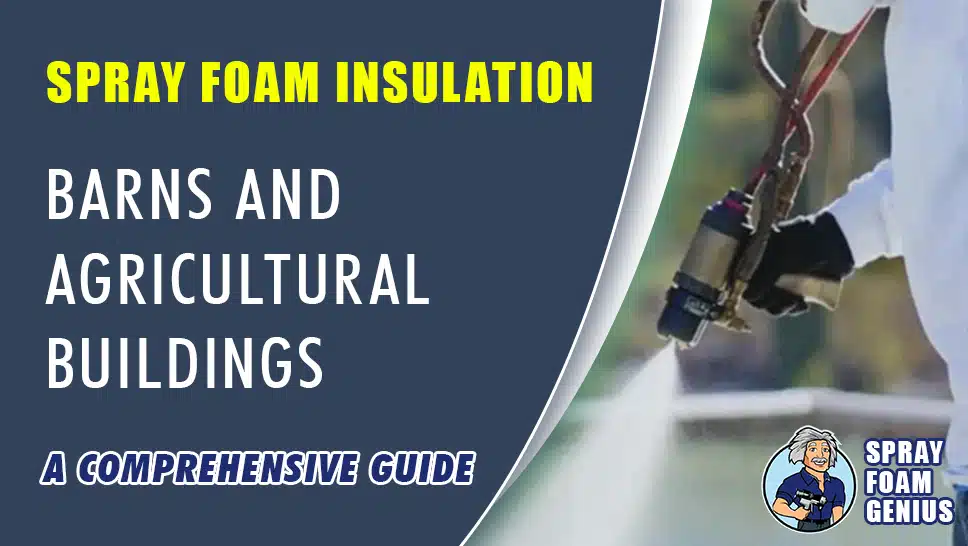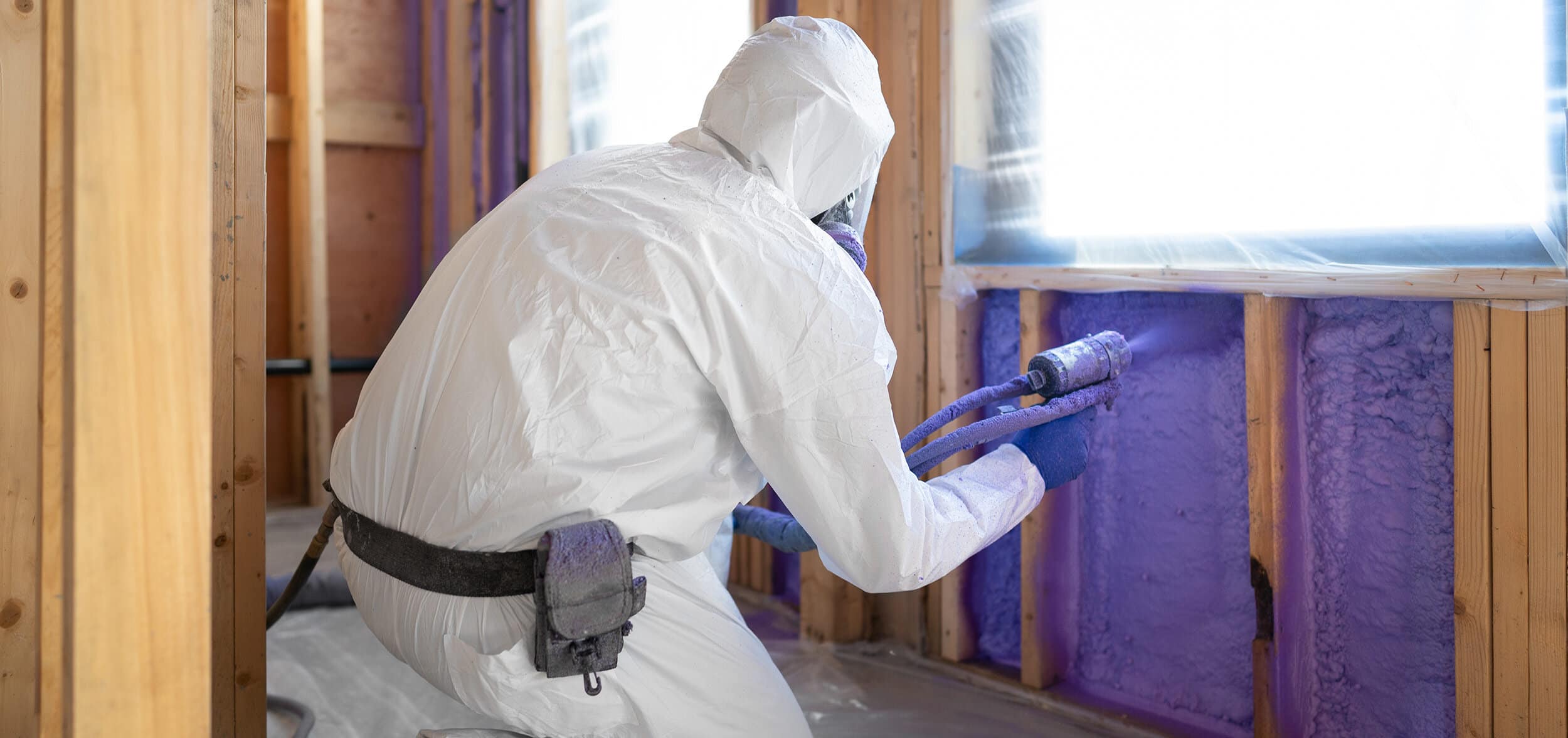
When it comes to barns and agricultural buildings, maintaining a controlled environment is crucial for the health of livestock, the preservation of feed, and the protection of equipment. Spray foam insulation has emerged as a superior solution in this regard, offering exceptional thermal performance, energy efficiency, and durability. At Spray Foam Genius Marketing, we provide expert digital marketing solutions tailored specifically for spray foam insulation contractors. This guide delves into the myriad benefits of spray foam insulation for agricultural settings, highlighting why it is a wise investment for enhancing the performance and longevity of these structures.
Understanding Spray Foam Insulation
Spray foam insulation is a modern insulating material created by combining two liquid components—isocyanate and polyol resin. When these components are mixed, they react and expand into a foam, which is then sprayed onto surfaces. This foam solidifies into a seamless, airtight barrier that offers superior insulation compared to traditional materials. The two primary types of spray foam are:
Open-Cell Spray Foam
Open-cell spray foam is characterized by its softer, more flexible structure. It is ideal for applications where soundproofing and ease of installation are important. Though it has a lower R-value compared to closed-cell foam, it is often chosen for its affordability and excellent acoustic properties. Open-cell foam is also known for its breathability, which helps in managing indoor air quality.
Closed-Cell Spray Foam
Closed-cell spray foam is denser and more rigid, providing a higher R-value and superior moisture resistance. This type is particularly effective in environments with high humidity or potential water exposure. Closed-cell foam not only enhances thermal insulation but also adds structural strength to the building, making it a preferred choice for agricultural buildings exposed to harsh weather conditions.
Advantages of Spray Foam Insulation for Agricultural Buildings
Enhanced Thermal Insulation and Energy Efficiency
One of the primary benefits of spray foam insulation is its exceptional thermal performance. Spray foam insulation helps significantly reduce heat transfer, which is crucial for maintaining stable temperatures within barns and agricultural buildings. This is especially important for protecting livestock from extreme temperatures and ensuring that feed and equipment are stored in optimal conditions.
By creating a continuous, uninterrupted layer of insulation, spray foam reduces the reliance on heating and cooling systems. This translates into significant energy savings, as the insulation minimizes heat loss in winter and keeps the interior cooler in summer. The result is a more energy-efficient building that contributes to lower utility bills over time.
Moisture Control and Mold Prevention
Agricultural buildings are often subject to high moisture levels and humidity, which can lead to mold growth and structural damage. Closed-cell spray foam insulation acts as an effective moisture barrier, preventing water infiltration and reducing the risk of mold and rot. This is particularly important in barns where moisture control is vital for maintaining a healthy environment for livestock and preserving feed quality.
The moisture-resistant properties of closed-cell spray foam also help protect the structural integrity of the building. By preventing water from penetrating walls and roofs, spray foam reduces the risk of wood rot and other moisture-related issues that can compromise the building’s durability.
Superior Air Sealing Properties
Unlike traditional insulation materials, spray foam expands upon application, filling gaps, cracks, and crevices that may otherwise allow air leaks. This air-sealing capability ensures that the building envelope is tightly sealed, reducing drafts and improving overall comfort. A well-sealed building not only enhances indoor comfort but also improves energy efficiency by minimizing the need for additional heating or cooling.
The ability of spray foam insulation to create a seamless barrier also helps in reducing the entry of pests and pollutants. This added protection contributes to a cleaner and healthier environment within the building.
Increased Structural Strength and Durability
Closed-cell spray foam insulation adds structural strength to the building, reinforcing walls and roofs. This increased rigidity helps the structure withstand external forces such as high winds, heavy snow loads, and other environmental stresses. This added durability is particularly beneficial in agricultural settings where buildings are often exposed to harsh weather conditions.
The enhanced structural integrity provided by spray foam insulation can also extend the lifespan of the building. By reducing the risk of damage from environmental factors, spray foam helps ensure that the building remains in good condition for many years.
The Application Process for Spray Foam Insulation

Preparation
Proper preparation is essential for ensuring effective spray foam insulation application. This involves cleaning the surfaces to be insulated to remove any dirt, dust, or debris. The surfaces should be dry and free from moisture to ensure optimal adhesion of the foam. Any existing insulation or damaged materials should be removed or repaired to provide a clean, stable surface for the new insulation.
Application
The application of spray foam insulation requires specialized equipment to mix and spray the foam onto the surfaces. The foam is applied in layers, with each layer expanding and curing before the next is applied. It is important to follow all safety guidelines during the application process, including wearing protective gear and ensuring proper ventilation.
The application process involves spraying the foam onto the surfaces in a controlled manner to create an even, continuous layer of insulation. The foam expands rapidly upon application, filling gaps and crevices to create an airtight seal.
Curing
After application, the foam needs time to cure and fully expand. The curing period can vary depending on the type of foam used and the environmental conditions. During this time, the foam hardens and forms a solid, uninterrupted insulation layer. It is important to allow sufficient curing time to ensure that the foam reaches its full insulating potential.
Inspection and Quality Assurance
Once the foam has cured, it is essential to conduct a thorough inspection to ensure that the insulation has been applied correctly and effectively. This includes checking for any gaps, inconsistencies, or areas that may require touch-ups. A quality assurance inspection helps ensure that the insulation performs to its full potential and meets the desired standards.
Benefits of Professional Installation
While DIY spray foam insulation kits are available, professional installation offers several distinct advantages:
- Expertise and Experience: Professional installers have the expertise and experience necessary to handle complex installations and ensure that the foam is applied correctly. They are familiar with the nuances of spray foam application and can address any challenges that may arise during the process.
- Quality Equipment: Professionals use high-quality, commercial-grade equipment that provides a more consistent and effective application compared to DIY kits. This ensures that the foam is applied evenly and performs optimally.
- Safety: The installation process involves handling chemicals and equipment that require proper safety precautions. Professionals are trained to manage these risks effectively, ensuring a safe installation process for both the installers and the building occupants.
- Warranty and Support: Professional installation often comes with warranties and support services, providing peace of mind and protection for your investment. Warranties cover potential issues that may arise after installation, and support services help address any concerns or questions you may have.
Maintenance and Longevity of Spray Foam Insulation
Spray foam insulation is known for its durability and low maintenance requirements. Once installed, it typically requires minimal upkeep. Regular inspections can help identify any potential issues, such as damage from external factors or wear and tear. Addressing any issues promptly helps ensure that the insulation remains effective and continues to provide the desired benefits.
Common Issues and Solutions
While spray foam insulation is highly durable, some common issues may arise over time:
- Physical Damage: Physical damage to the insulation, such as from impacts or abrasion, can compromise its effectiveness. Repairing damaged areas promptly helps maintain the integrity of the insulation.
- Settling: In some cases, spray foam insulation may settle or compress over time. Regular inspections can identify settling issues, and additional foam can be applied if needed to restore the insulation’s performance.
- Moisture Intrusion: Although closed-cell spray foam is highly resistant to moisture, severe water intrusion or leaks can still affect its performance. Addressing any sources of moisture and repairing any damage helps ensure that the insulation remains effective.
Making the Right Choice for Your Agricultural Building
Selecting the right insulation for your barn or agricultural building involves evaluating various factors, including climate, building design, and specific needs. Spray foam insulation offers a range of benefits that make it an excellent choice for enhancing energy efficiency, moisture control, and structural durability.
For more information on how spray foam insulation can benefit your agricultural building and to explore how our expert marketing services can support your spray foam insulation business, visit Spray Foam Genius Marketing, call us at 877-840-FOAM for USA and 844-741-FOAM for Canada, or email us at [email protected]. Our dedicated team of experts is here to provide the support you need to succeed in the competitive field of spray foam insulation.
- How to Use Pinterest to Market Your Spray Foam Insulation Services - December 27, 2023
- How to Use LinkedIn to Grow Your Spray Foam Insulation Business - December 23, 2023
- How to Use Instagram to Showcase Your Spray Foam Insulation Projects - December 16, 2023

